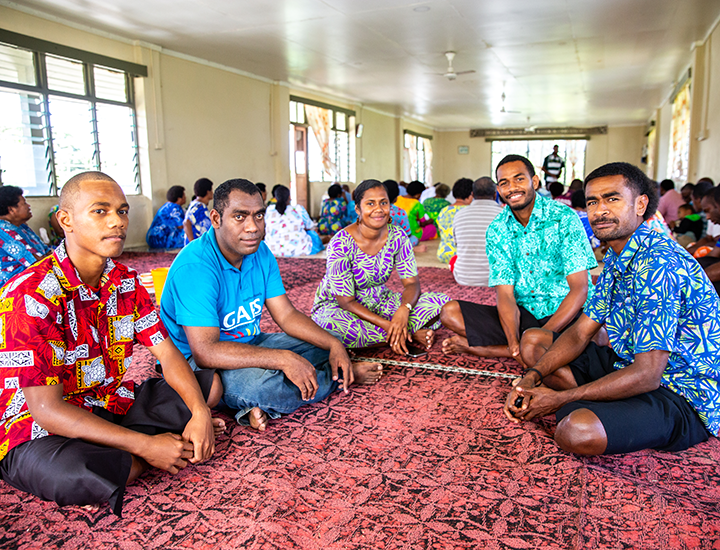Unequal Pandemic: Driving Food Insecurity
Stories | August 10, 2021
People who are already on the margins of society in many ways, including people with disabilities, have been further pushed towards food insecurity during the COVID-19 pandemic.
That’s one of the key findings of a new report, An unequal pandemic: Insights and Evidence from Communities and Civil Society Organisations, which draws on data and experiences contributed by more than 20 civil society organisations including CBM.
The report explores some of the ways in which marginalized groups of people have been pushed more towards the brink due to the catastrophic impact of the pandemic across health, the economy, education as well as a reported increase in violence and discrimination.
It highlights that food insecurity has increased throughout COVID-19 for a range of reasons including falling incomes, reduction in livelihoods and increased food prices because of disruptions to supply chains.
For some, physically accessing food during lockdowns proved an additional challenge. This was true for people with disabilities, some of whom reported trying to navigate inaccessible stores due to their regular shops being closed.
The Disability Rights Monitor Report found that most Governments, not just in poor parts of the world but also high-income countries, had not taken adequate steps to safeguard access to food for people with disabilities.
Close to one third of survey respondents, from 81 countries across the world, said that people with disabilities faced challenges trying to access food in their countries.
Some truly heartbreaking stories – including people with disabilities being assaulted by police after breaking local curfews in search of food – have been uncovered.
With COVID-19 still having a devastating impact across the globe, CBM continues to work with local partners on the ground to support communities to better face the risk of the pandemic.
This work includes supporting people with disabilities to maintain health and hygiene by providing safe, clean water for washing and drinking and cleaning products like soap, equipping partner hospitals and clinics with PPE including masks and gloves and ensuring emergency aid packages are available to those facing food crisis and starvation.
Can you help us to ensure people with disabilities are not left behind during COVID-19? Donate Today
https://www.cbm.org.au/stories/unequal-pandemic-driving-food-insecurity
Related Stories

Building a Just and Inclusive Future: Disability-Inclusive Disaster Risk Reduction and Climate Action
People with disabilities are among the hardest hit by...

Week 1 – Lent series 2025
Being held by Jesus…held together by Jesus, invites us to lean into solidarity. As we begin Lent today, we will be reflecting on the theme...

Five things organisations should think about when supporting OPDs in capacity strengthening
Strengthening the capacity of organisations of people with disabilities...
